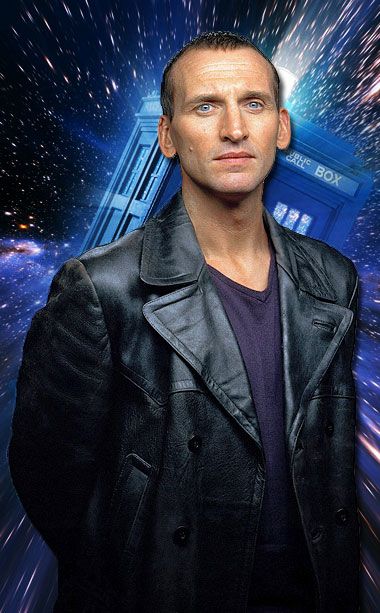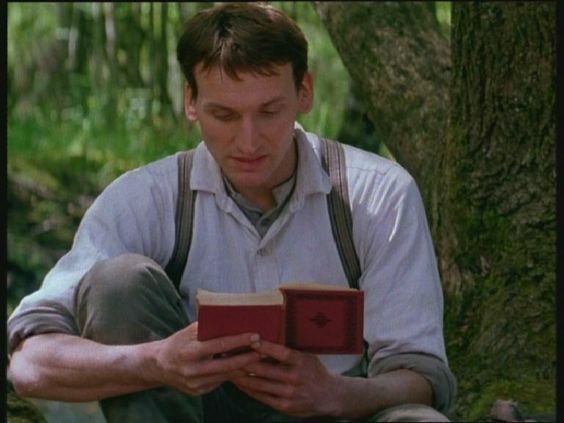
I love the Ninth Doctor Christopher Eccleston. You already know that by my recent discussion about the Ninth Doctor. When I found out he wrote an autobiography focusing on his relationship with his father and his struggles with both anorexia and depression, I knew I had to buy a copy and read the book.
“I Love the Bones of You” is very much a tell-all sort of autobiography. Eccleston holds nothing back, beginning with his earliest childhood memories. The book is somewhat arranged topically and in quasi chronological order that actually works fairly fluidly – except in the final three or four chapters when it’s a bit confusing in terms of what happened relative to other events. It is certainly well written, a compliment I offer less often than people would like.
On the surface, Christopher’s life seems idyllic, especially his family life. Both his parents and his twin older brothers are loving and kind. No abuse in his family, though his father Ronnie does have a temper of sorts. Christopher emphasizes their working class status that colors almost everything in their lives. This is not the United States with its ideas of everyone being the same class (false of course – but that’s what Americans tend to believe): this is England. The England of Christopher’s time (and perhaps still true today) is very much stratified between the working class, the middle class, and the upper classes. Where you are born in that hierarchy dictates nearly everything in your life; Christopher Eccleston shows us exactly how he experienced it and how it affected each member of his family.
Christopher’s challenges with body image and eating are explored at length in often shocking detail. That he manage to survive and to do his work is very much surprising. In this he gets very honest about how the film industry works, especially towards food, eating, and body expectations. He holds nothing back and does not try to paint the film and television industry along rosy lines.
This candor persists when the subject switches to his struggles with depression. The narrative is straight forward, including the cause of his decision to seek in-patient treatment. In a pattern I recognize in my own autobiographical writings, Christopher is ruthlessly honest while still building a protective bubble of privacy. He gives you just enough details to see why he needed professional help – but no more. Skillful writing to accomplish what he does.


In the middle of this and about halfway through the book Christopher Eccleston turns to his professional life, giving us inside insights into films and television shows most of us know him for. Surprising to me because I watch the movie every December is how much he dislikes the movie “The Seeker: the Dark Also Rises” which is one of his most family-friendly films and made shortly after stepping down from Doctor Who. He covers most if not all of his major projects – what he liked, what he thinks of himself, and so forth. He’s very self critical in all of this.

Jude (1996)
The one project Christopher is not critical of is his 1996 film “Jude.” He devotes a full chapter to it entitled, “Strangled at Birth.” Jude sounds like a great film I would love to watch – until I read this chapter.
Earlier in the book Christopher tells us that shortly after finishing drama school he worked as a nude model for art classes. Okay, I knew that before I started this book. Actor straight out of college doing whatever he has to for rent money. Fine. He previewed that he did a lot a projects requiring him to take his clothes off. Fine. But it’s only in this chapter, “Strangled at Birth” where he gets graphic on the matter. Jude is absolutely not a film for children. There is a lot of very explicit sex and violence to the film. Wonderfully artistic, but not for viewers who abstain from erotica and/or horror genres. Christopher is very matter-of-fact and very honest about the film and its content. It’s also one that both he and his family happen to really like among his extensive filmography.
Logically, there’s a fair amount of Mancunian dialect and a lot of references to film, television, and footballers that most Americans probably have never heard of. These references do make the book a bit confusing at times. Chris assumes (rightly or wrongly) that these names are familiar. For me, they are not.
After Chris writes the usual career stuff, he returns to family. There are two short chapters recording what happened when he finally watched his season of Doctor Who with his son and daughter that are light and airy, a break from some of the darker material.
But inevitably the book returns to his father’s decline and 2012 death. This is a book focused on his relationship with his father, after all, a man whose life and character saturates and informs his own life, especially as he raises his son and daughter now.
The final cadence of the book is the eulogy that Chris gave at his father’s funeral. The ultimate salute to the man told him during his dementia, “I Love the Bones of You.”
If you love Christopher Eccleston’s work or simply want a great read exploring dementia, depression, and/or eating disorders, “I Love the Bones of You” is a must-read.
Four stars.





